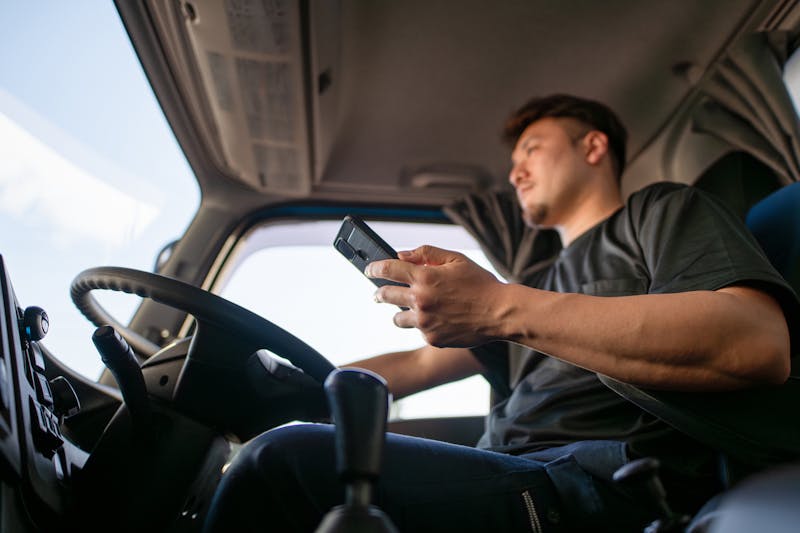Contact Us
Complete the form below for a free case evaluation.

Due to the size and weight of commercial vehicles, truck accidents often lead to catastrophic consequences. When one occurs, the question of who is liable is critical, but unfortunately, the answer is rarely straightforward.
Trucking operations involve multiple parties, including drivers, employers, contractors, cargo companies, and manufacturers. Identifying the responsible party requires a comprehensive investigation and an understanding of federal and state regulations.
At Webster Vicknair Macleod, our truck accident attorneys will take on this challenging task on your behalf.
Liability determines which party should pay for your accident-related losses. Whether you’re filing an insurance claim or a personal injury lawsuit, the outcome depends on proving who caused the crash and how.
Determining liability allows injured victims to seek compensation for:
The stakes are high because truck accidents typically result in more severe injuries than passenger vehicle crashes. Trucking companies and insurers will often try to shift blame or downplay their role to avoid paying what victims deserve.
Commercial truck accidents involve additional legal and logistical layers, unlike standard car crashes. Some reasons liability is more complex include:
Liability isn’t just about who was driving. It’s about how the entire trucking operation was managed.
The type of evidence you need to establish liability depends on the facts of the case. A skilled truck attorney from our firm will collect a wide range of evidence to determine how the crash occurred and who was at fault.
Here are some of the most important types of evidence:
These offer a foundational crash summary, including driver statements, observed violations, and any citations issued by responding officers. While not always definitive, they provide an official account of what happened.
These detail how well the truck was maintained and whether mechanical issues were reported, ignored, or improperly addressed. Poor maintenance can point to negligence by the carrier or a third-party service provider.
These can show whether the driver was distracted or using a phone during the crash. GPS data also reveals speed, route, and whether the driver made unauthorized stops or detours.
These documents include pre- and post-trip inspection records, noting any known issues with the vehicle. They can uncover long-standing problems that were not addressed before the crash.
Most commercial trucks are equipped with event data recorders (EDRs), also called "black boxes." These track speed, braking, engine activity, and more. This data can reconstruct the final moments leading up to impact.
Federal regulations require drivers to log hours on the road. These records are imperative in determining whether fatigue or hours-of-service violations played a role.
In some cases, footage from the truck’s dashcam or nearby traffic cameras can capture the collision, offering direct visual evidence.
Statements from bystanders, other drivers, or passengers can help corroborate the circumstances surrounding the accident.
Emails, texts, dispatch logs, and company policies can show whether the trucking company encouraged unsafe practices or violated safety regulations.
Several parties can share truck accident liability. Key entities that may bear responsibility include:
If the driver was speeding, distracted, impaired, or violating hours-of-service rules, they can be held personally liable. However, driver fault is often just the tip of the iceberg.
Trucking companies can be held liable for:
Under the legal framework of respondeat superior, employers may also be held vicariously liable for the actions of their employees or agents while performing work duties.
When the truck is owned by someone other than the driver or employer, that party may be liable for poor maintenance, defective equipment, or negligent leasing practices.
Incorrectly loaded cargo can cause a trailer to become unbalanced or to spill onto the roadway. If a third-party cargo handler was responsible, they may be liable for contributing to the accident.
Trucking companies often outsource vehicle maintenance. If a repair shop fails to fix a known issue or creates a new hazard through shoddy work, they may share liability.
When a defective part, such as faulty brakes, tires, or coupling mechanisms, causes a crash, the manufacturer or supplier may be liable under product liability laws.
Sometimes, another motorist triggers a chain reaction that leads to a truck crash. In these situations, liability may be shared with additional drivers or third parties not affiliated with the trucking industry.
Insurance companies, especially those representing large trucking firms, are not on your side. Their goal is to minimize payouts and protect their bottom line. In many cases, they will:
Victims should never accept a settlement or provide a recorded statement without the guidance of our experienced truck accident attorneys.
Due to the complexity and resources required to investigate truck accidents, hiring a truck accident attorney is in your best interest. Our legal team can:
Our truck accident lawyers also ensure that victims meet strict deadlines, comply with procedural requirements, and are not manipulated into low settlements.
Unlike a simple car crash, a truck accident is a multi-layered event involving individuals, companies, machinery, and regulations. Identifying liability requires deep analysis and legal insight. It’s not just about who was behind the wheel; it’s about understanding the larger system that contributed to the crash.
If you or a loved one has been injured in a truck accident, you need a team that can dig into the details, identify every liable party, and fight for your right to full compensation. At Webster Vicknair Macleod, we understand the devastating impact that truck accidents can have. Our truck accident attorneys have the experience and resources to uncover the truth and hold every responsible party accountable. Schedule a free consultation today by contacting us online.
American Bar Association. (n.d.). Personal injury claims. https://www.americanbar.org/groups/public_education/resources/law_issues_for_consumers/everydaylaw0/health_care/personal_injury/personal_injury_claims/
Federal Motor Carrier Safety Administration. (n.d.). Regulations. U.S. Department of Transportation. https://www.fmcsa.dot.gov/regulations/
National Highway Traffic Safety Administration. (n.d.). Event data recorder. U.S. Department of Transportation. https://www.nhtsa.gov/research-data/event-data-recorder
Complete the form below for a free case evaluation.
© Webster Vicknair Macleod. All Rights Reserved.